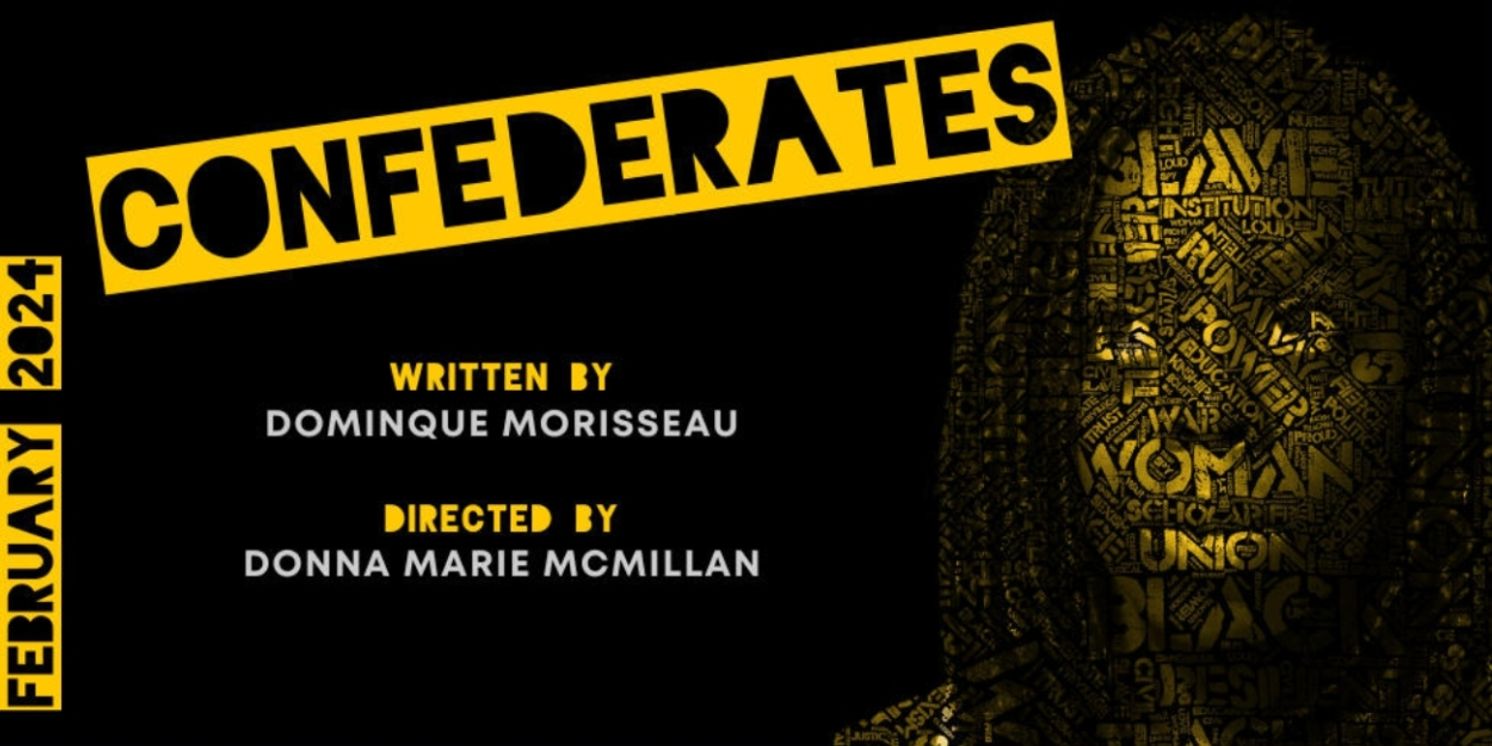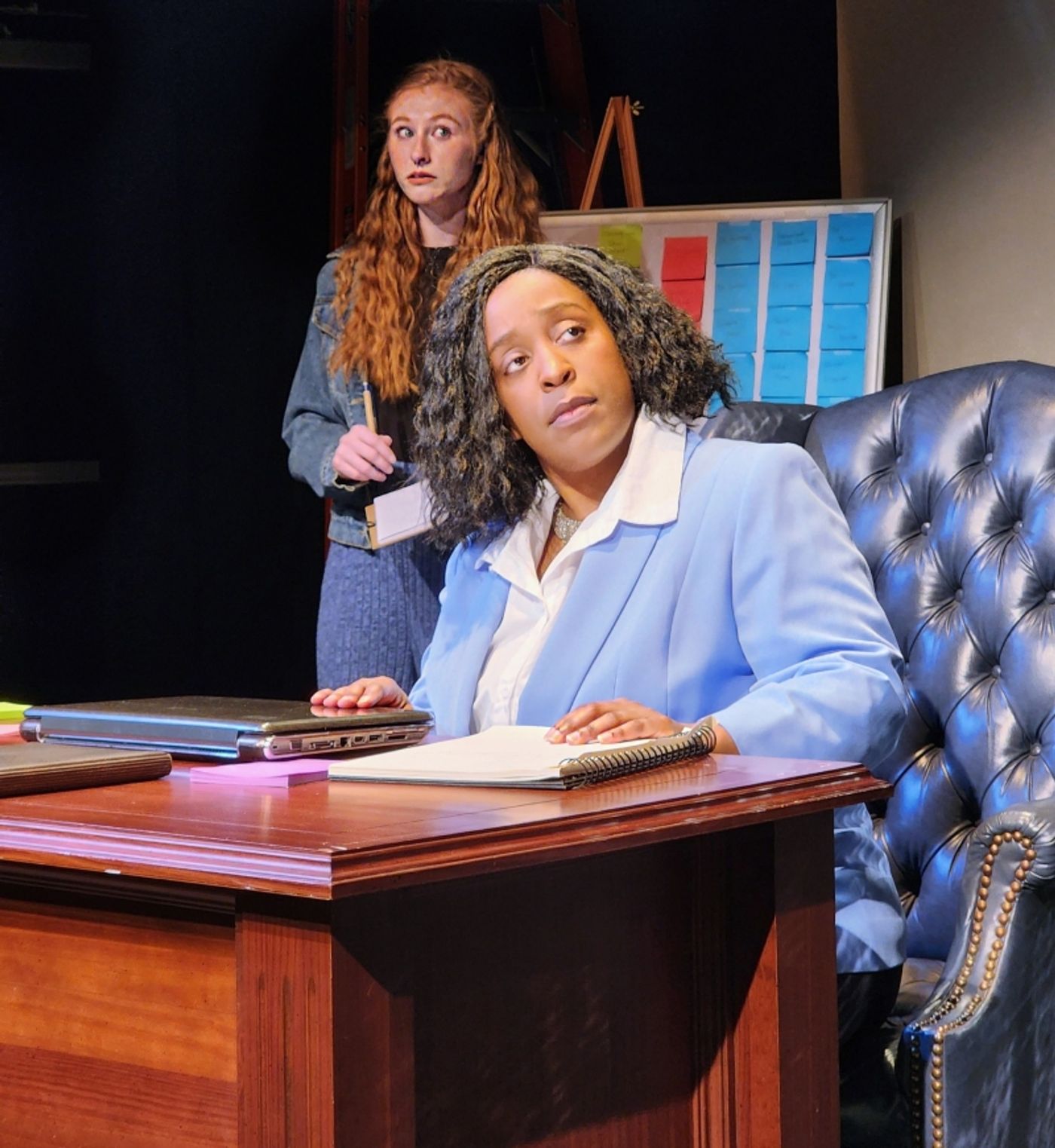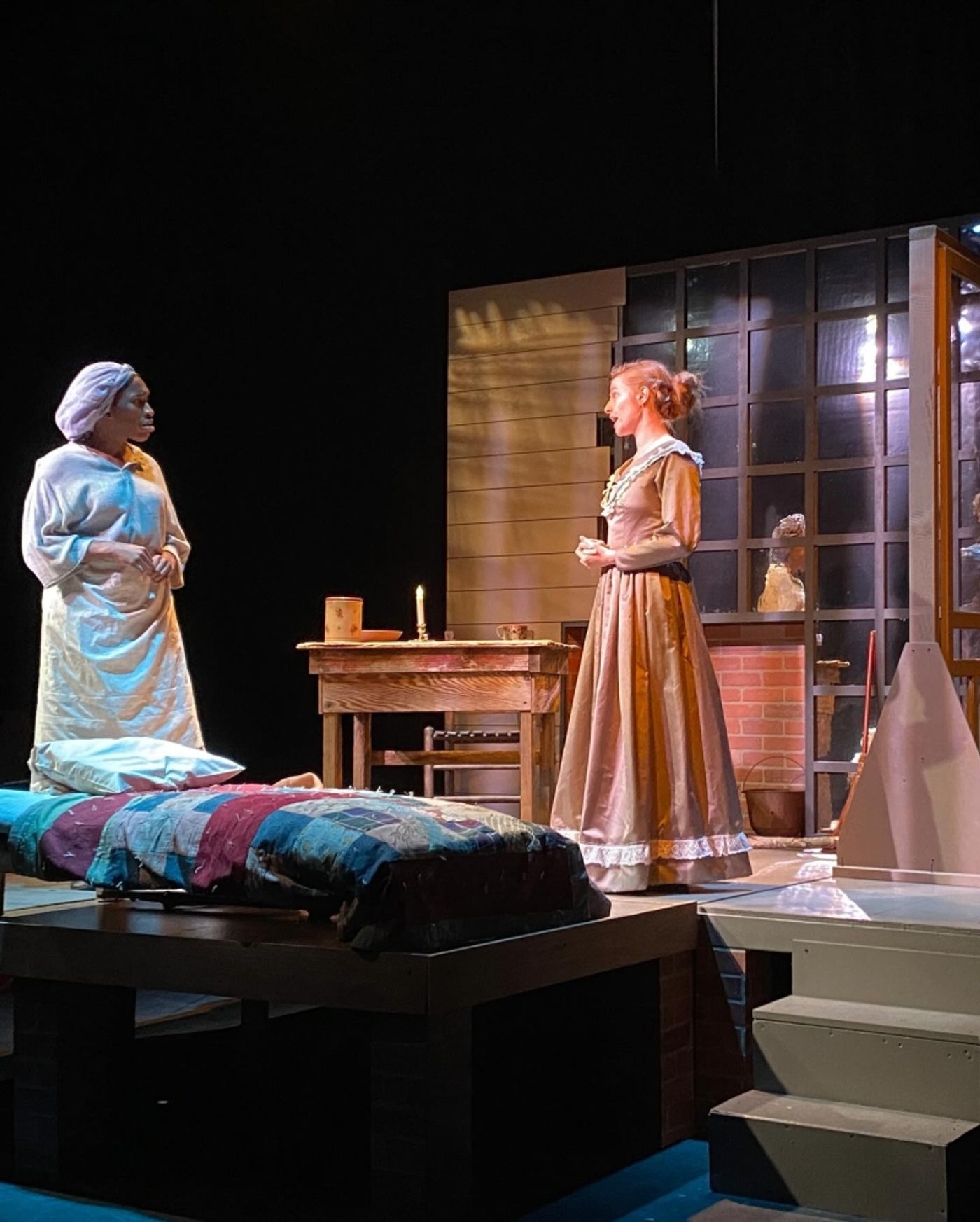Review: CONFEDERATES Makes Its Debut in Charlotte, North Carolina at The Arts Factory
Three Bone Theatre Presents Confederates - Written By Dominique Morriseau, Directed By Donna Marie

This past weekend, I had the privilege to attend the opening night of Confederates, written by playwright Dominique Morisseau (Ain’t Too Proud To Beg), directed by Donna Marie, and presented by Three Bone Theatre, at The Arts Factory. The storyline centers around two African American women, one a slave named Sara (Nonye Obichere) and the other a college professor Sandra (Valerie Thames). Both women lived in two different time periods; yet, their lives/challenges paralleled in similar ways. Both are surrounded by toxic people that had no good intentions. Both are expected to be the problem-solver/fixer of their inner circle’s situations, whether interrelated or not.
Before I dive into my review, I have a personal revelation, I struggle with slave-related subject matters because it makes me emotional to see the physical and mental suffering my cultural ancestors endured. Consequently, I feel there is a huge debt still owed; so these storylines awaken heartfelt feelings of long overdue reparations. With that being said, Confederates was an emotional rollercoaster ride for me.
My first eyebrow raise was the opening screen projection of a bare-breasted black woman breastfeeding a white baby. Apparently, this image had been tampered with, photoshopped, and replaced with Professor Sandra’s face and had been attached to the professor’s door. Immediately, I assumed that this had to be a racist “hate” gesture. As Sandra stood there delivering a monologue expressing her frustration with the unknown assailant that rendered the act, I also felt frustration and some sense of offense as if the negative nuance had been directed to me personally. I, too, wanted to know the source of this evil deed.
As the professor exits the stage, we are immediately catapulted to this time period of slavery. This entire slavery depiction introduced a circle of toxicity yet a strategic game of “chess” in which it appeared that Sara is being utilized as “the pawn”. She is moving in so many directions and operates in many different roles. The first of which was “stitch stitcher” for her brother Abner (Daylen Jones), who is a soldier in the Union army who appears to be fighting a war he can’t win. Wounded, he climbs up from a crawl-space, to endure the rigid stitching from his sister…all the while complaining. He appears to spend more time hiding than fighting. It almost seemed like a role reversal between the two siblings. Sara appeared to have more masculine traits with aspiration to engage in combat. Obsessed with Abner’s musket, she expressed that she wanted to fight like a man. On the other hand, Abner seemed more of a “weaker vessel” who always needed Sara’s assistance to put him back together again. It just goes to show that women’s fight for equality has been a longtime arduous desire.
Then, there’s Sara’s friendship (or whatever it is) with the slave owner’s daughter, Missy Sue (Holi Armstrong). You talk about a “ball of confusion” laced with extreme manipulation, conning tactics, and seductiveness. We learn that Missy Sue taught Sara how to read (which is a good thing); yet her good deed isn’t without self-indulgence motive because she used her to secretly transfer documents stolen from her Dad (a high-ranking officer) to spy on the army, all the while enticing Sara to satisfy her lustful longings. This situation made me ponder on a question I never envisioned in the past. I wonder if slave girls were not only been raped by their slave owners and yet forcibly seduced into lesbianism by the white women as well? Even though “Sara” had strong characteristics of independence she was entangled in so much rhetoric and bondage. It reminded me that Black women’s fight for liberation and equality “ain’t been no crystal staircase”. We’ve had to “give” in order to “receive” and some of those moments of giving were not willful or tasteful.
The third wheel in the equation is Sara’s friend Luanne (Jess Johnson), who is the Slave Master’s mistress in a sense. Luanne is more concerned with the fact that she is being sold because the master has found a younger mistress to replace her. She seemed to have an expectation for Sara to solve a situation that she doesn’t have the power to change. Her role in this equation is blurred lines to me.
After the slave encounter, we time travel to the future where the professor Sandra (Valerie Thames) is facing her own challenges with colleagues, students, and blatant racism. If I had to utilize one phrase to sum up this half of the parallel it would be “backstabbing sabotage”. The dramatization depicts a power message that implies that even when a Black woman is in the position of authority, she is still plagued with methods intended to enslave her again and again. The difference is the attempt to camouflage racism and sexism within the walls of institutionalism are often convoluted to its origin. A popular Aretha Franklin song raises the speculation in the question, “Who’s Zooming Who?” Who is the brain child behind the curtains pulling the strings of deception? The act begins with a student (Daylen Jones) expressing displeasure about a grade he received on his term paper. He implied that the professor had a bias and dislike against him. However, she expressed that there are more points he needed to explore and suggested that he do so in order to improve his grade. Not only is the professor dealing with a disgruntled student, but she also had an encounter with a jealous colleague, Jade (Jess Johnson) who felt slighted because she believed that Sandra did not recommend her for a desired position. On top of that, Sandra's white assistant, Candice (Holi Armstrong) was clearly not a loyal employee who was managing her administrative duties efficiently. Candice selectively hid certain e-mails from the professor. Her disloyalty could have been due to the fact that she wanted to be Professor Jade’s assistant instead of Sandra’s but wasn’t hired as such. The tables turned when Sandra delivered the desired grade to Malik after he added pertinent points to support his thesis. In addition, she also gave Jade the recommendation she desired. Filled with remorse, Malik made a stunning revelation that shifted the trajectory of the entire storyline. He admitted to Sandra that both Candice and he were responsible for creating the awful image that went viral and was also placed on the professor’s door. Candrice gave Malik the original image and Malik put Sandra's face on it. That revelation immediately erased the hate crime stigma that I had implanted in my head. Actually, it was a hate crime of a different kind, but not a white supremacy hate crime that I initially envisioned.
Honestly, I had difficulty connecting-the-dots between the two separate lives of the women until I spoke to the director, Donna Marie after the production. She helped me see the similar oppression that both women faced and how it related to a universal message that Black women have been faced with throughout the ages. No matter how we try to advance pass our enslaved past, we are still enslaved in "hidden" institutional racism. There is an inherent responsibility to work twice as hard to be just as successful as others. And, the other stigma that sometimes exists (as in the case of Jade) is the unspoken challenge and competitiveness that comes from those within the same race.
In conclusion, I can say that playwright Dominique Morriseau truly knows how to deliver a storyline that is thought-provoking and full of metaphors. It certainly took me on a mental journey filled with diverse questions and mind-teasers. Three Bone Theatre, great job, in tackling such a masterfully written production with so many takeaways.

The Photoshopped Photo Of A Bare-Breasted Black Women Breastfeeding A White Infant With Her Assistant (Candice) portrayed by Holi Armstrong In Background.
(Photo Courtesy Of Three Bone Theatre)

(Photo Courtesy Of Three Bone Theatre)
Confederates Runs February 9-24, 2024
Thursdays, Fridays, Saturdays at 8 p.m.
Sundays at 2 p.m.
Performances will be held at
The Arts Factory at West End Studios
1545 W. Trade St. Charlotte, NC
For More Information On Three Bone Theatre Visit Website https://www.threebonetheatre.com/
Reader Reviews
Videos

